READY TO GET STARTED?
REQUEST A FREE ESTIMATE
Fill out the form below or call (888) 466-7849 for a free, no-obligation estimate.
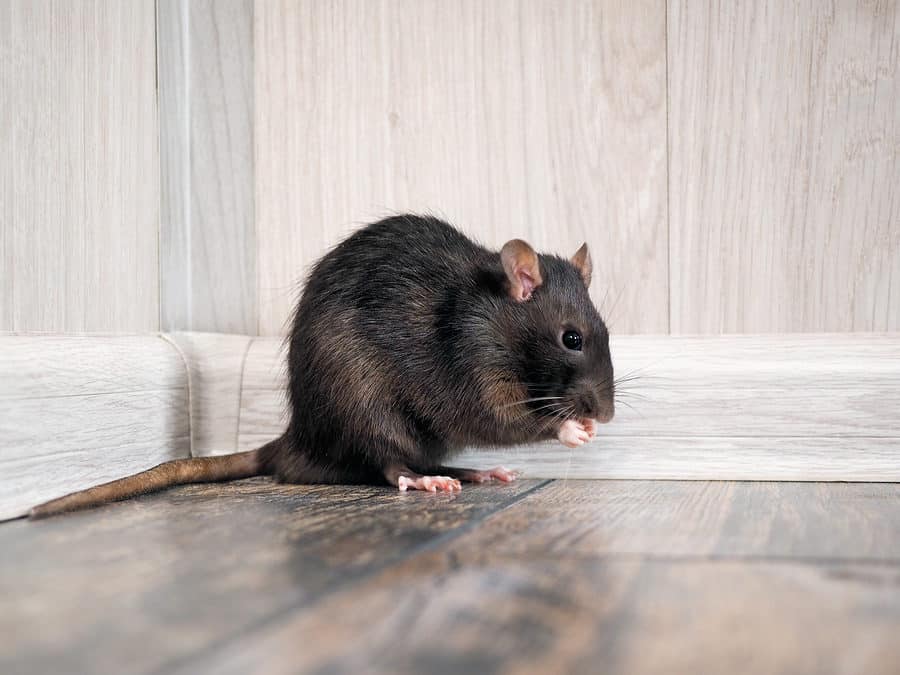
FACT. Rats are one of the most common pest issues homeowners face. Rats are known for being destructive by gnawing on structures in and around your home including utility pipes, wood structures, and wiring. In addition to the structural damage rats can cause, it is also possible for rats to pose serious health risks to humans. Diseases caused by rats can be transmitted through bites or scratches. Rat feces illness can be transmitted to humans through rat droppings and urine left around your home. Humans can also get sick through contaminated food caused by rats running across countertops where food is later prepared.
Just how sick can rats make you? Here are some common rat-borne diseases found in the United States.
Hantavirus pulmonary syndrome is a viral illness spread by deer mice, cotton rats, rice rats, and white-footed mice. HPS is spread by direct contact with rodents or their urine and feces, by breathing in dust contaminated with urine or droppings, or by bite wounds. Symptoms in the first phase of the virus include fatigue, fever, muscle aches, headache, dizziness, chills, nausea, vomiting, and abdominal pain. The symptoms then progress to coughing and shortness of breath. HPS is a severe and sometimes fatal respiratory disease with a 38% mortality rate. There is no specific treatment, cure, or vaccine for hantavirus infection.
Leptospirosis is a bacterial disease spread by rodents worldwide by either eating or drinking food and water contaminated with urine or contact through the skin or mucous membranes with water or soil that is contaminated with urine. Without treatment, leptospirosis can lead to kidney damage, meningitis (inflammation of the membrane around the brain and spinal cord), liver failure, respiratory distress, and even death. Common symptoms include fever, chills, headache, muscle aches, abdominal pain, vomiting, jaundice, diarrhea, and rash. The symptoms are often mistaken for other illnesses. If not treated, the second phase of symptoms includes kidney or liver failure or meningitis. The disease lasts between 1 and 3 weeks. Leptospirosis is treated with antibiotics.
Rat-bite fever is a bacterial illness spread by rats and possibly mice. The disease occurs worldwide and is spread through bites or scratches from an infected rodent, contact with a dead rodent, or eating or drinking food and water that is contaminated by rat feces. If not treated, RBF can be a serious or even fatal disease. RBF is not spread from one person to another. The early symptoms of RBF can be similar to the symptoms of other medical conditions. Common symptoms include fever, headache, muscle pain, headaches, vomiting, joint pain, and rash. If the illness progresses, more severe complication can arise such as abscesses, hepatitis, kidney infections, pneumonia, meningitis, or infections in the heart. RBF is treated with antibiotics.
Salmonellosis is a bacterial disease found worldwide that is spread by rats and mice. Salmonellosis is spread through eating or drinking food and water that is contaminated by rat feces. Salmonellosis is an infection caused by the Salmonella bacteria. Although commonly spread when a person eats contaminated food, the bacteria also can be passed between people and animals. Common symptoms include diarrhea, vomiting, fever, and abdominal cramps. Salmonella infections in people usually resolve within 5-7 days, and most do not require treatment other than drinking plenty of fluids. People with severe diarrhea may need to spend time in a hospital getting rehydrated with intravenous fluids.
Rat-borne diseases can cause serious and sometimes fatal illnesses in humans. The best way to avoid these diseases is to prevent rats from infesting your home in the first place. Here are some common home rat prevention tips:
Request a Free Wildlife Control Estimate
The Dos and Donts of Bird Nest Removal
When Should You Be Concerned About A Spider Bite?
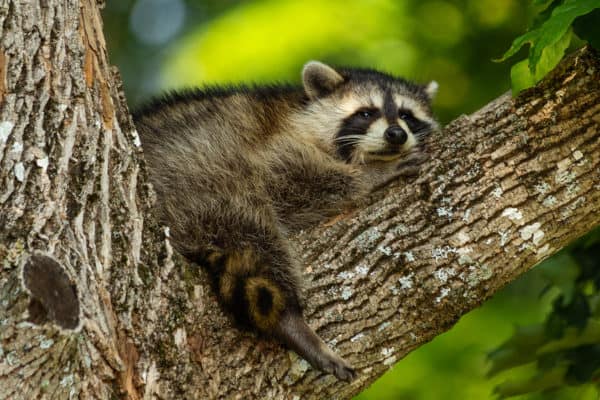
While we most often think of wildlife being a problem in the winter months, these animals don’t just disappear when the weather gets warm. Wildlife can still be quite active in the summer, wreaking havoc on our homes and gardens. Whatever the time of year, preventing and controlling these nuisance pests is of the utmost importance, as they not only cause damage to homes and property, but can also pose significant health risks to both humans and pets. Wildlife prevention (also known as wildlife exclusion) is the first line of control against critters; however, once they have established themselves in or around your home, wildlife removal becomes a more necessary option. Let’s look at some common summer wildlife, as well as ways to exclude them from your home.
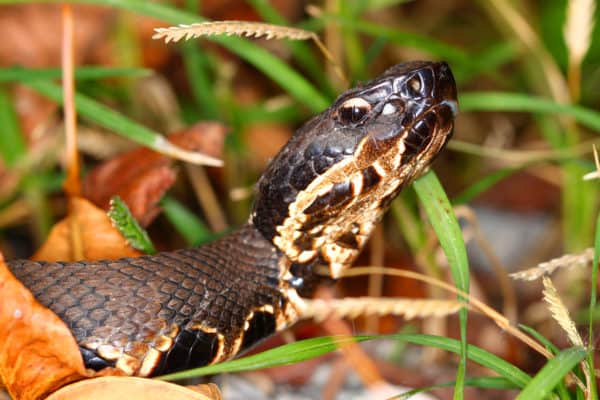
Snakes are cold-blooded animals that require heat and sunlight for energy. They are more active in the summer months because they require more energy for mating. Too much exposure can overheat them so snakes are typically more active in the early morning and late evenings or at night in the summertime. They will also seek out shelter during the hottest parts of the day in cool, dark places like underneath rocks and decks or in basements. Snakes will choose where they live based on the availability of food, shelter, and shade.
To prevent snakes this summer:
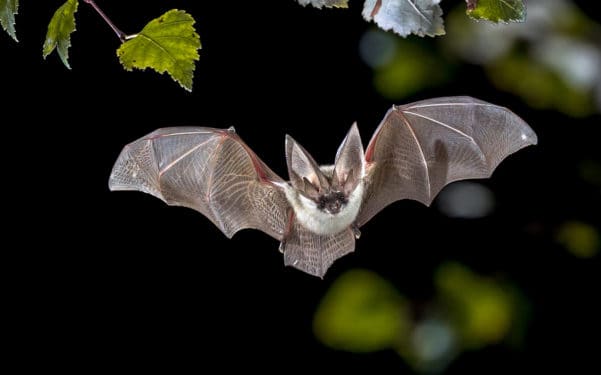
While bats are scary to many people, they are actually quite beneficial at keeping insect populations down. In the southern United States, many bat species are active year-round. Bats enter homes through openings. They can cause damage in homes by ruining insulation, causing structural damage when their urine soaks through to sheet rock or particle board, and their urine and feces causing health concerns for occupants of the home. Bats also carry serious diseases such as rabies, with 1 to 3 cases of bat transmitted rabies occurring each year. Bats are nocturnal and emerge at dusk in search of food. Female bats search for summer roosts where they stay until they have their young. For this reason, unless there is a threat to public health, eviction or exclusion of bats should not take place between April and August. Colonies will disband in late summer as bats leave for their winter roosts.
To prevent bats in the summer:
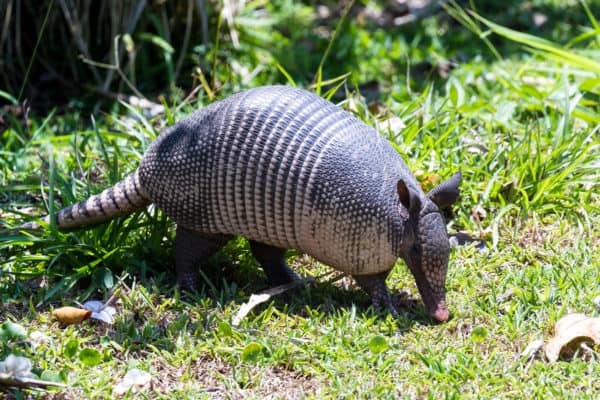
Armadillos mate in the fall, with their young born in the spring, making them very active in the summer months. They prefer habitats near streams or other water sources with sandy or clay soil. They are often found in forests, woodlands, prairies, salt marshes, coastal dunes, pastures, cemeteries, parks, golf courses, and crop lands. They love to nest in rock piles, around trees and shrubs, and under rock slabs. Armadillos dig burrows that can be up to 25 feet long, which can significantly damage tree roots. These burrows can also cause flooding if they are dug around crawlspaces, patios, or walkways. Armadillos have poorly developed teeth and limited mobility. they have poor eyesight but a keen sense of smell. They have very few natural predators. They are strong diggers which they rely on to find shelter and food and causing most of the damage around your home and property. Armadillos will eat fruit (especially from gardens and compost piles), grubs, worms, beetles, wasps, ants, millipedes, centipedes, and snails.
To prevent armadillos in the summer:
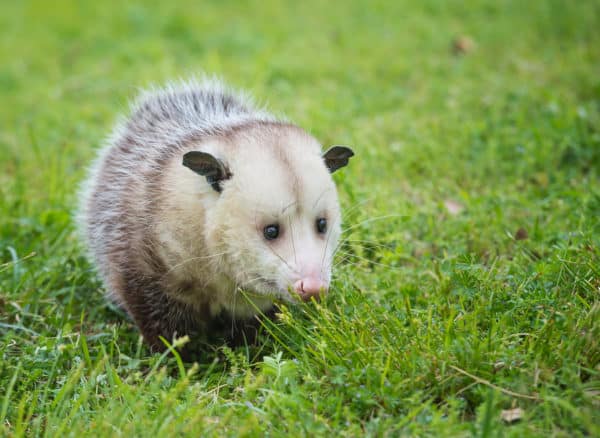
Opossum females are laden with their young in the summer months, making them more active in their search for food. Opossums are found throughout the United States. They live in trees and will stay in them as much as possible. They also prefer wet areas like marshes and swamps. Opossums are nocturnal and will forage for food at night. They are beneficial in they eat harmful and unwanted pests around your home. They prefer to eat snails, slugs, spiders, cockroaches, rats, mice and snakes. They will also eat nuts, grass, fruit, roadkill, and garbage. They are rarely aggressive and will play dead when they feel threatened.
To prevent opossums this summer:
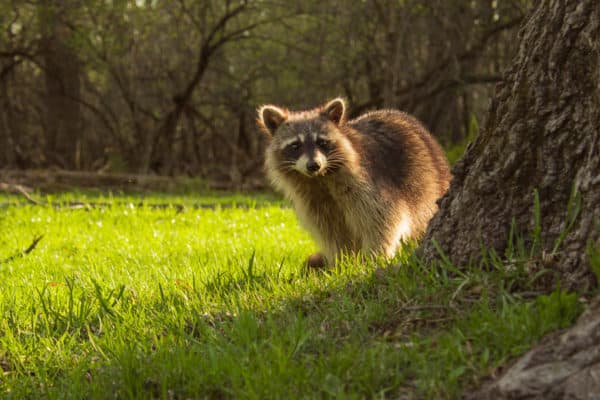
Raccoons are highly intelligent and curious animals. They typically give birth to their young in April and May, making them very active in the summer months. They are found throughout the United States. They prefer to live in heavily wooded areas with access to trees, water, and vegetation. They are extremely adaptable, however, and will make their homes in attics, sewers, barns, and sheds. They are dexterous, capable of opening doors, jars, bottles, and latches. They are known to carry several bacterial diseases. Raccoons are nocturnal animals, searching for food at night. They will eat almost anything including birds, eggs, fish, shellfish, frogs, fruit, insects, nuts, seeds, and even snakes. They are known to destroy gardens, tip over garbage cans, and cause structural damage in their quest for food.
To prevent raccoons this summer:
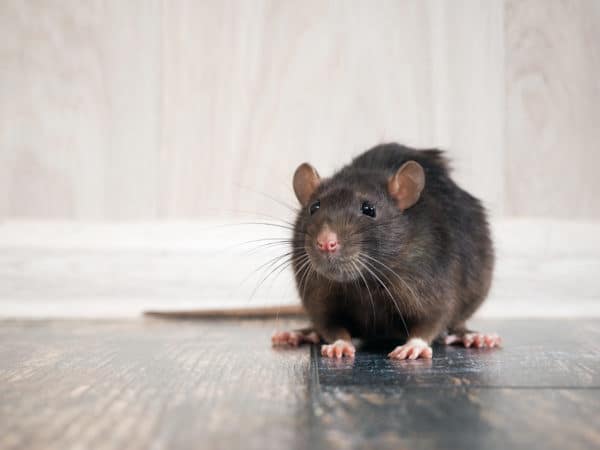
Rats are active year-round. The summer provides them with ample sources of food making them very active. They are also busy making burrows and storing food in preparation for the winter. Rats can reproduce very quickly so control and elimination can be extremely difficult. They are excellent climbers and are well adapted to living in human environments. Rats can contaminate food, cause fire hazards by chewing through wires, and their urine and feces can cause serious health concerns.
To prevent rats this summer:
Prevention is always a good first step at keeping wildlife away. Once you have a wildlife issue, however, prevention usually needs to shift to removal and exclusion. Consider contacting a professional wildlife control company who can assess your wildlife issue and provide you with the safest and most appropriate treatment and prevention options.
How Long Does A Mosquito Treatment Last?
Summer’s HOT Temperatures Damage Your Lawn?
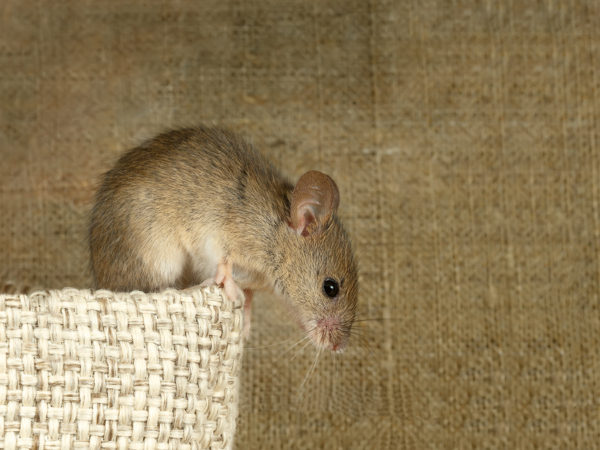
Rodents are one of the most common pests that come into our homes in the winter. Rodents are in search of 3 things – food, water, and shelter – and they can find all 3 of them in and around our homes. Squirrels, raccoons, rats, and mice are some of the most frequently seen rodents in the colder months. Rodents can cause significant damage to property and can also be a big health risk to humans. Prevention is critical in managing and preventing an infestation of rodents. Check out these tips to keep the rodents out this winter:

Here at Northwest, we consider ourselves experts in Wildlife Control & Removal and can handle any critter problem – from squirrel invasions, rodent damage and contamination, to snake removal, raccoon trapping, and dead animal removal (just to name a few!). Every wildlife exclusion or removal job is unique and takes a special skill set and training to safely and effectively remove the animals and prevent them from coming back. As a homeowner, it’s important to be well-informed on your service options if and when the need for critter control arrives. That’s why we’ve put together a list of what we consider to be the top wildlife control companies in the Savannah, GA area. And while we’re highly-rated and equally equipped for the job, it’s nice to have options! Our goal is to help homeowners and business owners find solutions that work, even if it’s not through our services.
In addition, here are some wildlife resources you might find helpful:
Or try these links for specific wildlife nuisance questions:
If you suspect a wildlife nuisance problem and need fast service, click below to request a quote today.
The South (and a greater portion of the country) is making its way out of a treacherous winter. During the recent cold months its likely that pests or wildlife may have taken shelter in your home. Since Spring is approaching it’s a good time to get in the habit of checking around your property for areas that could have been used or could be used as entry points for wildlife.
Wildlife and pests come in all different shapes and sizes. Some are relatively harmless while others can cause potential health threats. Illnesses can be contracted by breathing in contaminated air with spores that develop from fungus grown in animals’ fecal matter. The elderly, children, or those with compromised immune systems can be at high risk for contracting these illnesses.
If you hear scratching or scurrying in your walls, don’t ignore it or try to solve the problem on your own, call a professional wildlife removal team. Guessing or attempting to get rid of the animal on your own could result in costly damage and even danger. When hiring a trusted wildlife removal company, like Northwest Exterminating, the first order of business is to inspect the property and assess the situation. They can identify the issue based on where you’re hearing noises, openings, droppings, gnaw marks, or nests. Once the pest is identified a customized plan can be established.
As we say here over and over again, the key is PREVENTION. Some wildlife are bound and determined to get into your home regardless of the steps you take, however, there are ways you can deter them.
Wildlife Prevention Tips: